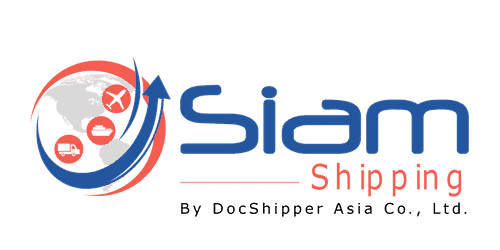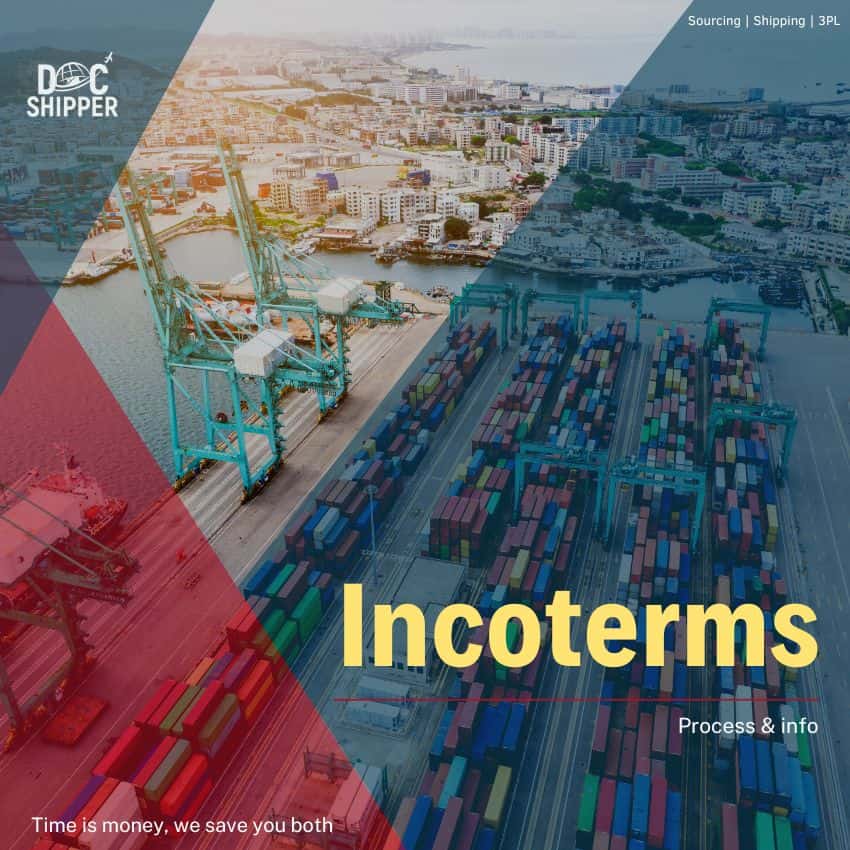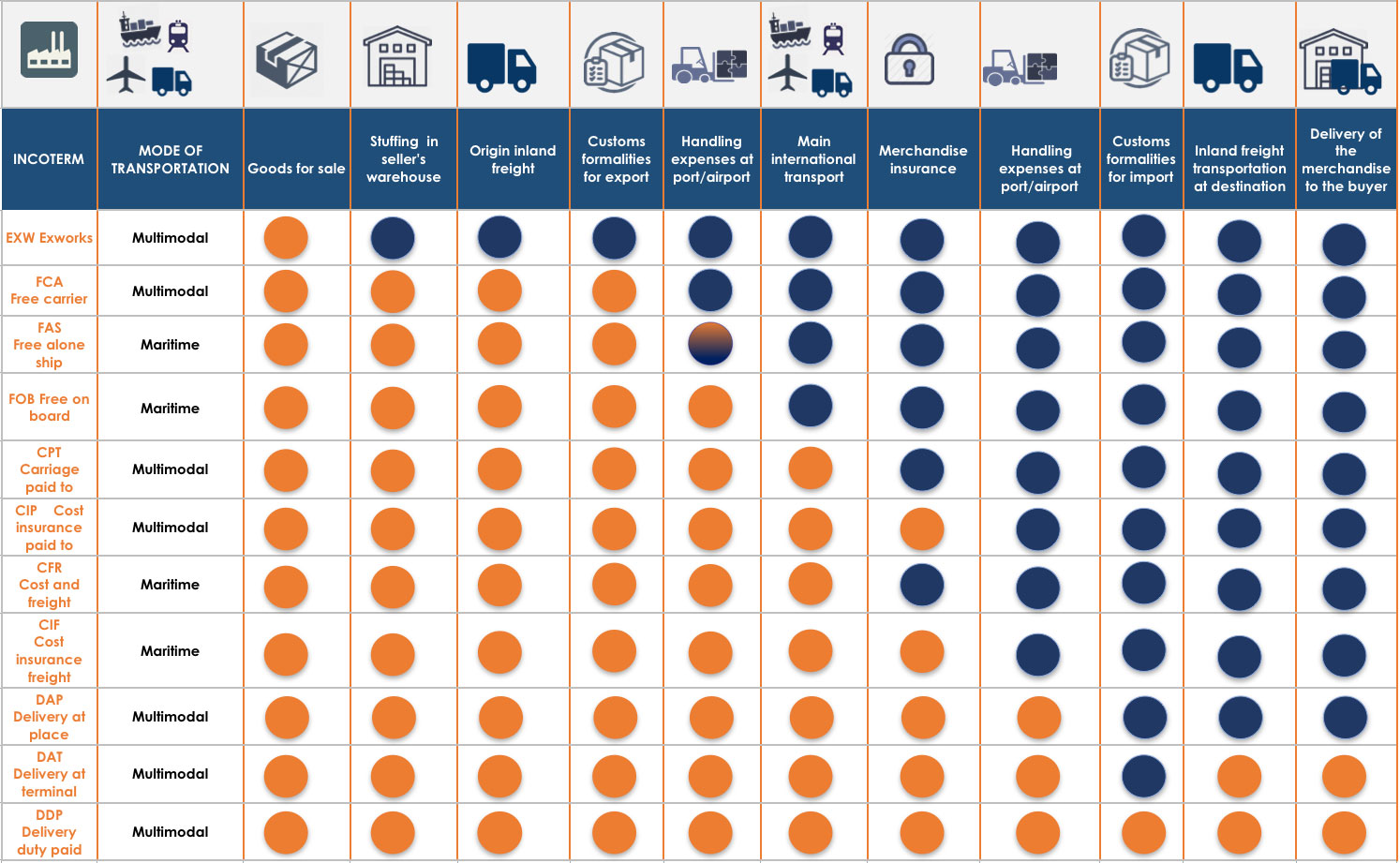The Incoterms rules or International Commercial Terms are a series of pre-defined commercial terms published by the International Chamber of Commerce (ICC). They are widely used in International commercial transactions or procurement processes. A series of three-letter trade terms related to common contractual sales practices, there are intended primarily to clearly communicate the tasks, costs, and risks associated with the transportation and delivery of goods.
The Incoterms
Commercial Matters Trade Phrases, or Incoterms for short, are selling terms purchasers and sellers use so they may convey which party is accountable for the responsibilities, costs, and hazards associated with delivering the items to the buyer while dealing internationally. These are legally binding agreements published by the International Chamber of Commerce (ICC), and followed by practically all governments.
Every 10 years, the ICC changes the Incoterms to ensure that they keep consistent with the current process of international trade. Incoterms were last updated on January 1st, 2020, and feature 11 unique categories.
Why utilize Incoterms?
Incoterms norms, unlike other global trade provisions such as the Harmonized Tariff Schedule of the United States, are universal. A rule like the "less than truckload shipping" (LTL) rule of the United States is not included in Incoterms rules. International trade regulations like Incoterms provide businesses with transparency and predictability, unlike national trade policies.
The Incoterms are organized into two categories:
for all modes of transport:
EXW – Ex Works
FCA – Free Carrier
CPT – Carriage Paid To
CIP – Carriage Paid, Insurance
DPU – Delivered at place unloaded (new) : new DAT
DAP – Delivered at Place (new)
DDP – Delivered Duty Paid
only by sea:
FAS – Free Alongside Ship
FOB – Free On Board
CFR – Cost and Freight
CIF – Cost, Insurance and Freight
Incoterms for all modes of transport
EXW – Ex Works : means that the seller is in charge of packaging and delivering the merchandise. While the cargo is still at the seller's location, it is transferred to the buyer. Afterward, the buyer is responsible for transporting and importing the cargo.
FCA – Free Carrier : Transporting the goods to a specified location within their country, such as a shipping terminal, is the seller's responsibility under FCA (Free Carrier). Once the package reaches its final destination, the buyer is responsible for paying the freight charges and completing the import and delivery process. The cargo is either exported by the seller or the buyer, depending on the location's name.
CPT – Carriage Paid To : The seller is responsible for shipping and unloading the cargo from the vessel at the specified destination. Once the cargo is unloaded, it is transferred to the buyer, who is responsible for importing and transporting the freight to its final destination.
CIP – Carriage Paid, Insurance : Shipping and insurance charges must be borne by the seller, who must deliver the goods to the designated location. After the cargo is unloaded and delivered to the terminal, the shipment is transferred to the buyer. The shipment is transferred to the buyer once the products have been unloaded and delivered to the designated terminal. The buyer is responsible for importing and transporting the items to their final destination. Freight insurance must be purchased by the seller as part of CIP.
DPU – Delivered at place unloaded (new) : new DAT : The seller must deliver and unload the cargo to the final destination. Once the shipment is successfully unloaded at the buyer’s warehouse, the responsibility transfers to the buyer. The buyer is responsible for import duty, taxes, and customs clearance.
DAP – Delivered at Place (new) : Delivery of the cargo must be made to its final destination by the vendor. Cargo is transferred to the buyer when it is delivered. The vehicle must be unloaded by the buyer. The customer is also responsible for paying import duties, taxes, and completing customs paperwork.
DDP – Delivered Duty Paid : There is a lot of paperwork involved in importing a shipment, and the seller bears the brunt of that burden. It is the buyer's responsibility to pay for unloading fees once the goods has arrived at its final destination. Only the DDP Incoterm mandates that the seller bear the full cost of any import duties.
Only incoterms by sea
FAS – Free Alongside Ship :The seller is responsible for overseeing the entire export process from the time the products leave the port until they arrive at their final destination. The risk is shifted to the buyer once the ship is docked. Cargo must be loaded onto the customer's vessel of choice and sent to its final destination by the buyer.
FOB – Free On Board :The seller is responsible for the entire export process, including loading the goods onto the ship. Cargo is transferred to the buyer once it has been safely loaded. The buyer is liable for all import fees, including the freight costs involved in getting the items to their final destination.
CFR – Cost and Freight : The cargo must be delivered to the buyer's port by the seller. When the goods arrive at the port, ownership is transferred to the purchaser. Importing and delivering to the final destination is completed by first unloading and then importing the cargo into the destination country.
CIF – Cost, Insurance and Freight : The vendor is responsible for all shipping and insurance costs. After things arrive at the port, buyers are responsible for them. All unloading, importing, and delivery fees are thereafter the responsibility of the buyer. Under CIF, the seller must purchase freight insurance.
The Incoterms rules are accepted by governments, legal authorities, and practitioners worldwide for the interpretation of most commonly used terms in international trade. They are intended to reduce or remove altogether uncertainties arising from different interpretation of the rules in different countries. As such they are regularly incorporated into sales contracts worldwide.
That’s why, they are really important in terms of regulation. It allows all authorities to judge under an unique system which makes the communication easier for every buyer and seller around the world.
It’s not rare to see Chinese seller (for example) to sell product under “FOB price” without explaining that the goods price does not include the transport of the goods, duties and taxes.
For a more clear vision of INCOTERMS, refer to the following table:
DocShipper Advice : In order to optimize our services, Siam Shipping and Siam Relocation are now part of the DocShipper group. Our customers can now benefit from total supply chain coverage. Therefore, Siam Shipping team became DocShipper team
Incoterms' advantages
When used in country-specific sales and shipping contracts, Incoterms remove any potential for ambiguity or inconsistency. Transporting goods from pickup sites to delivery destinations can be easily identified, costed, and managed by sellers and purchasers. Sales contracts based on the Group F structure are also available. A key advantage of Incoterms for purchasers is that they have more control over their supply chain, including the arrival of shipments and the subsequent release of goods into inventories. Group E Incoterms, which essentially delegate the bulk of the responsibilities to the buyer, are the most favorable for sellers.
Incoterms Group C
Drawbacks Incoterms are often more expensive for purchasers because the seller bears the costs of shipping and insurance. Exporters who opt to quote a final price without itemizing freight, insurance, and currency fluctuations put the importer at a disadvantage. If you book an inventory of pricey shipments, you may face difficulties because Incoterms do not cover the transfer of ownership or title. Because an inventory of pricey goods might help a company save money and increase revenue, this can be upsetting.
FAQ | Incoterms
To avoid paying customs duties Which Incoterm can I use?
There is no Incoterm that allows you to avoid paying customs duties and taxes. In the international logistics sector, customs procedures are unavoidable. However, you can benefit from tax exemptions for your shipment.
Where can I get more information about the Incoterm Rules?
Every ten years, the International Chamber of Commerce updates Incoterms. While organizations like Guided Imports rely on staying up to speed with the ICC's requirements, you can learn more about the rules by visiting the ICC website or downloading our handbook, which is updated on a regular basis.
Is there a standard way to determine which Incoterms to use?
It is common for sellers to have their preferred Incoterms in place unless specifically asked by a buyer. The best Incoterm for a transaction can be agreed upon by a buyer and a seller once they communicate their specific preferences to one another.
As a buyer and seller, how do you determine which Incoterm is best for the transaction?
As long as a buyer specifically requests a specific Incoterm, sellers often use Incoterms that work best for them and their clients. It is possible for a buyer and a seller to reach an agreement on the best Incoterm for their transaction by communicating their specific preferences to one another.
DocShipper info: Do you like our article today? For your business interest, you may like the following useful articles :
DocShipper Advise : We help you with the entire sourcing process so don't hesitate to contact us if you have any questions!
- Having trouble finding the appropriate product? Enjoy our sourcing services, we directly find the right suppliers for you!
- You don't trust your supplier? Ask our experts to do quality control to guarantee the condition of your goods!
- Do you need help with the logistics? Our international freight department supports you with door to door services!
- You don't want to handle distribution? Our 3PL department will handle the storage, order fulfillment, and last-mile delivery!
SIAM Shipping | Procurement - Quality control - Logistics
Alibaba, Dhgate, made-in-china... Many know of websites to get supplies in Asia, but how many have come across a scam ?! It is very risky to pay an Asian supplier halfway around the world based only on promises! DocShipper offers you complete procurement services integrating logistics needs: purchasing, quality control, customization, licensing, transport...
Communication is important, which is why we strive to discuss in the most suitable way for you!






